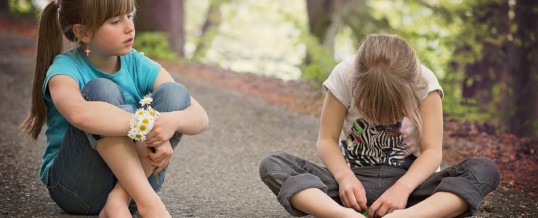
Joel and Andrew, 4-year old friends, were playing with Lego when suddenly, Andrew howled, “I was just going to use that—it’s mine!”
Joel had snatched one of the pieces Andrew had in his pile beside him. When Andrew protested, Joel knocked down his building and Andrew began to cry. Joel looked at his mother wide-eyed.
What To Do?
“Oh, no,” thought Joel’s mother. Normally, he was not a selfish boy, but lately he’d done some very unkind things. What should she do this time – demand that he immediately apologize to Andrew, make him have a time-out in his room, take away his Lego set for a week, tell him he couldn’t have anyone over to play until he could manage better?
On other occasions, she had tried one or more of these options but unhappy situations were still occurring. Besides, she was realizing that a parroted, “I’m sorry,” was just that – saying the words with no feeling behind them. When she had made him go to his room, there was usually a fight with Joel in tears, yelling and acting as though he were the victim. When he had to put a toy or game away for a period of time, it didn’t bother him very much because he would start playing with another toy and seem to forget about the stored one.
What could make a difference, make him want to change his behavior? Make him feel truly sorry when he had been unkind to someone?
Sincere and compassionate
How does a child get to the point of sincerely apologizing – in other words, with feeling and compassion?
Joel’s mother might begin by saying, “I know that Andrew is your friend and you like to play with him. When you take something he’s using and knock down his building, he feels bad and doesn’t want to play with you anymore.”
She could remind Joel, “Remember when you and Sue were playing and she wouldn’t let you have a turn? You felt picked on and angry”. Mother comforted and talked with him; he had stayed angry with Sue and called her “mean.”
She could ask him, “Is that how you want your friend to feel about you?” Joel would be better able to feel compassion when connecting Andrew’s feelings with ones he has experienced; he could be sensitive to the way he made Andrew feel. This will make his words, “I’m sorry,” much more healing for Andrew and for Joel himself.
Remorse and repair
Mother’s help in realizing another person’s bad feeling or hurt, and knowing that he caused it, will also lead the way to a feeling of remorse on Joel’s part. He will wish he hadn’t been so unkind. He will wish that Andrew wasn’t so angry with him and would still be his friend.
He will want to do something to make things better. He will also like the approval he gets from his mother and other adults when he does the kind thing, instead of causing disappointment and anger.
This can open the way for Mother to help him think about what he might do to repair what he has caused. In this case, it might be to gather the pieces of Lego that fell and, if Andrew wishes, help him re-build his building.
Sometimes repairing might mean doing some other act of kindness – drawing an “I’m sorry” picture, getting a tissue for a crying playmate, getting tape to repair something that was torn, etc.
Doing something kind will help restore Joel’s good feelings about himself instead of getting stuck in the misery of being the “bad guy.” He will feel better when he can sympathize with others and help them feel better, too.
The power to choose
Each time Joel is helped to realize how his actions have affected someone else or have turned a pleasant time into an unhappy one, he is forming convictions of what he wants for himself and how he wants to be thought of.
Does he want to be a bully who snatches whatever he wants, who destroys other people’s things, who spoils a nice time with a friend by his unkind behavior?
Or does he choose not to do those things he knows will hurt his playmate and end a fun playtime?
He will need help from the adults around him to think about what kind of boy he wants to be and to realize that only he can make that choice for himself. Four- and 5-year-olds are beginning to struggle with their developing consciences and the increasing capacity to empathize with others’ feelings.
They feel better when they learn their mistakes can be corrected, and then they are able to move on.
OCT
2023


About the Author: